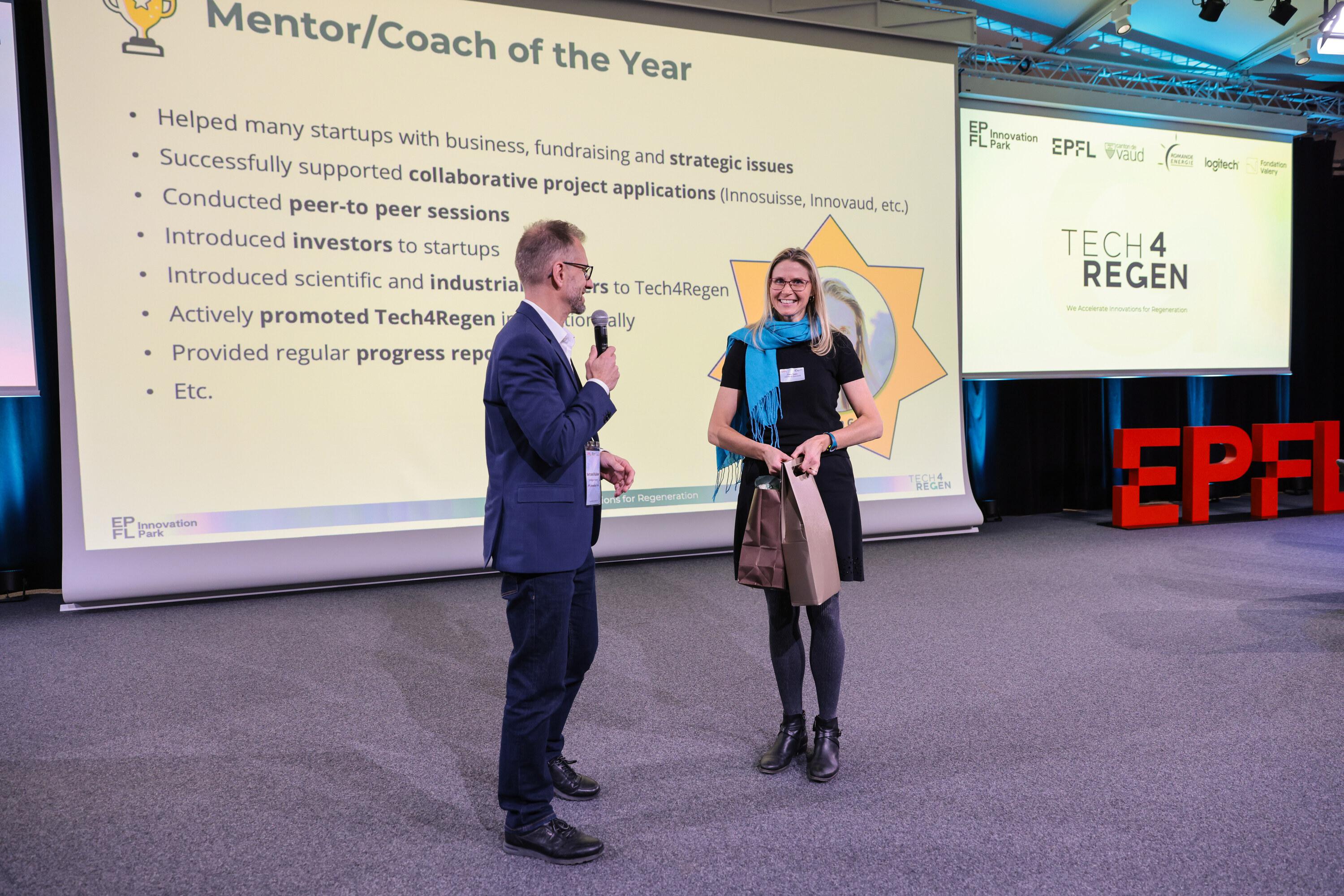Research and Industries Intersect on Sustainable Production

Sustainability Collider © 2024 EPFL Murielle Gerber - CC-BY-SA 4.0
On November 25, 2024, the Sustainability Collider brought together over 250 participants, including representatives from EPFL research labs, startups, and industries about solutions for a regenerative economy.
Co-organized by the Vice Presidency for Responsible Transformation (VPT) and the EPFL Innovation Park “Tech4Regen” startup accelerator, the event served as a platform for dialogue among EPFL research labs, startups from its innovation ecosystem, and industries active in material production or transformation.
Profs. Véronique Michaud and Tiffany Abitbol explained the rationale behind the symposium’s format and themes, emphasizing the urgent need for collaboration among stakeholders in light of the Climate and Innovation Act and the 2050 net-zero agenda.
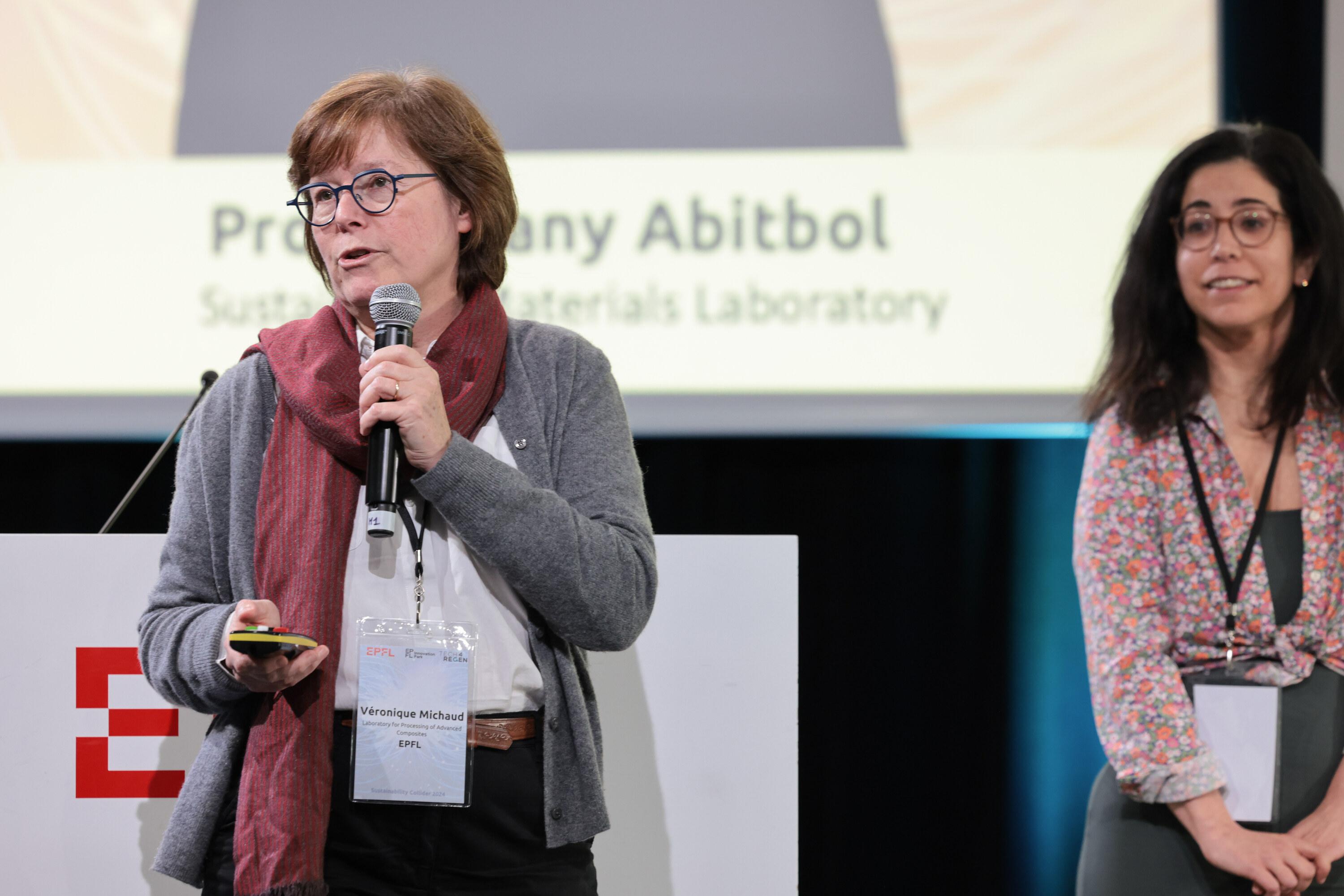
VP Gisou van der Goot highlighted the growing importance of sustainable research practices, while VP Ursula Oesterle outlined how EPFL’s innovation ecosystem is structured to support startups and corporates.
The Sustainability Collider was divided into three sessions, each featuring presentations from an EPFL lab, an industrial contributor, and startups, followed by a panel discussion.
I – New Materials and Sustainable Alternatives to Petrochemical Plastics and Composites
- Dr. Simonetta Rima (SULZER) emphasized the need for collaboration to tackle challenges in deploying new biopolymers. Sulzer’s portfolio includes commercially available materials (PLA, PCL) and others under development (PEF, PGA), alongside a new flexible process based on cyclization. However, the industrialization of bioplastics remains a steep challenge.
- Prof. Francesco Stellacci, head of the Supramolecular Nano-Materials and Interfaces Laboratory, advocated for nature-inspired circular recycling. He proposed that protein-based materials could be transformed into polymers, digested into amino acids, and recycled into new protein-based products, presenting a long-term yet potentially revolutionary approach for the plastics industry.
- Dr. Philip Scholten (Bloom Biorenewables) presented advancements in their aldehyde-assisted fractionation (AAF) technology for valorizing biomass.
The panel discussion was moderated by Dr. Pascale Van Landuyt from Alliance Program.
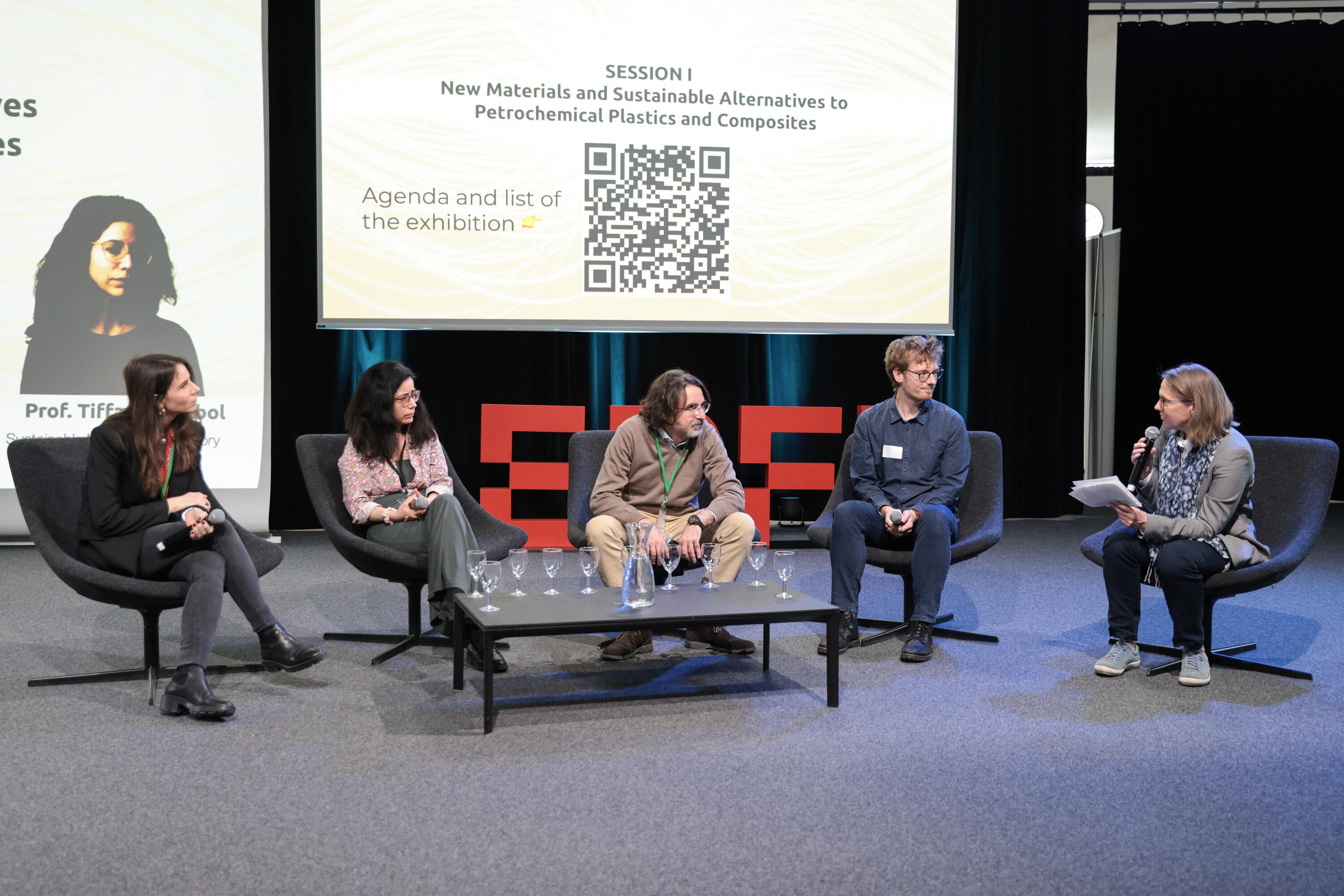
II – Circularity of Materials and Components
- Dr. Sergio Barbarino (P&G) outlined the challenges of achieving circularity for mixed-material products like cleaning wipes and face masks, highlighting collaborations with Fraunhofer and Plastogaz as potential solutions.
- Dr. Pierre Gérard (Arkema) focused on the recyclability of high-performance thermoplastics and composites, spanning technologies from TRL 5 to TRL 9, including thermoplastic resins designed for recycling.
- Prof. Véronique Michaud, head of the Laboratory for Processing of Advanced Composites, discussed circularity in composite materials, exploring alternative fibers and resins to lower energy use and waste. She called for stronger collaboration between academia and industry and for improved data availability.
- Dr. Pascal Gallo (Composite Recycling) presented their thermolysis process for separating composite materials into valuable fibers and oil, citing collaborations with Arkema.
- Rajiv Singhal (Grensol) showcased opportunities in recovering metals, minerals, hydrogen, and carbon black from automotive recycling waste using proprietary waste treatment technology.
The panel discussion was moderated by Dr. Martyn Wakeman from the Laboratory for Processing of Advanced Composites.
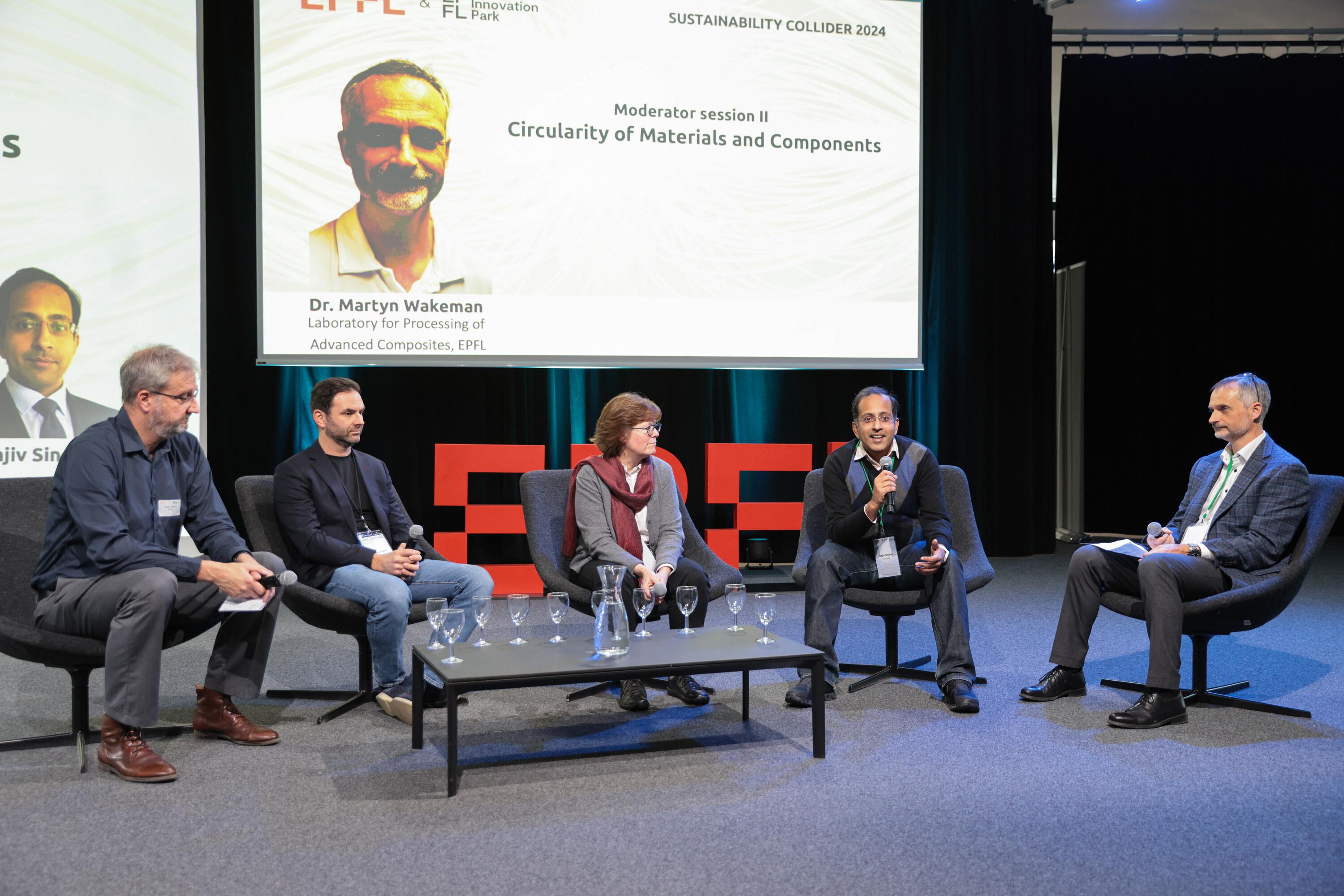
III – Greener Industrial Fabrication Processes and Supply Chains
- Dr. Olivier Enger (BASF) discussed efforts to close the circularity loop in the chemical industry by focusing on fossil-based, bio-based, and pyrolysis oil feedstocks and designing polymers for circularity.
- Prof. François Maréchal, head of the Industrial Process and Energy Systems Engineering group, presented a systemic vision of net-zero industrial production systems, highlighting the use of Digital Twins as decision-making tools for process optimization.
- Dr. Markus Aicheler (SolidWatts) introduced the cost and emission benefits of their proprietary dielectric heating technology for industries.
- Dr. Rafael Castro-Amoedo(Emissium) demonstrated their real-time data-driven solution for tracking the CO2 content of electricity supplied to industrial customers.
The panel discussion was moderated by Prof. Manuele Margni from the Institute of Sustainable Energy at HES-SO Valais.
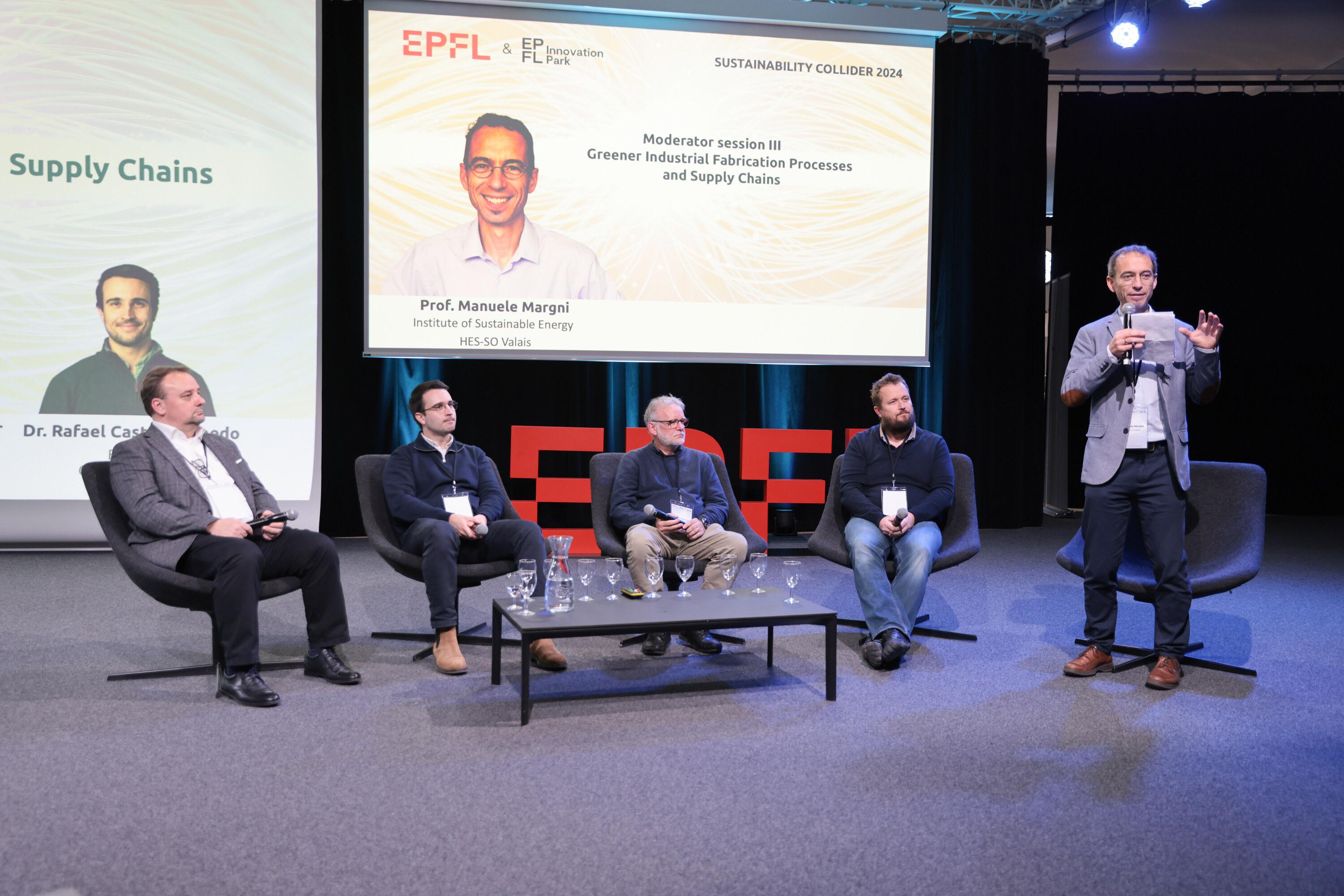
In addition to oral presentations and panel discussions, an exhibition featuring 17 startups and 14 EPFL lab posters provided participants with further insights.

The event concluded with the closing ceremony of the Tech4Regen 2024 support program.
